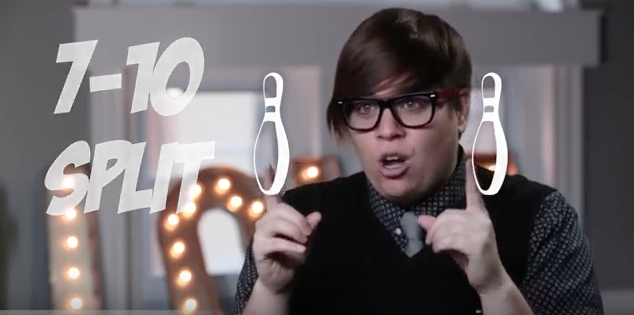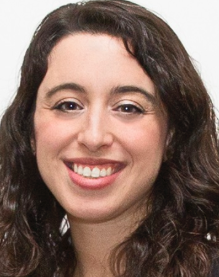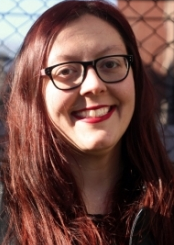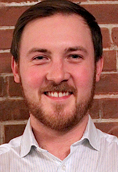Storytellers demonstrate the engagement power of passion
by Shari Graydon

Shelley Moore, UBC PhD student and one of five SSHRC Storyteller finalists, uses an inspired bowling analogy to help explain her research exploring the importance of inclusive education.
It’s a challenge that has defeated many experts with decades of professional experience. But in Calgary recently, at Congress 2016, 21 grad students from universities across the country managed to describe complex scientific research in engaging and accessible ways, and to do so in under three minutes each.
Lots of speakers – academics included – are still clearing their throats three minutes into a talk, but the Social Sciences and Humanities Research Council is trying to change that. In an effort to encourage more scholars to make their knowledge more accessible to a broader audience, SSHRC has been running an inspired competition for the past four years.
Aspiring “Storytellers” are charged with not only engaging an audience, but also making it clear why the SSHRC-funded research is important, and what its potential impact is likely to be.
I’ve had the pleasure of working with two dozen finalists every year, offering the students some suggestions for how they might translate their often amazing three-minute video submissions into equally compelling live presentations. Because many of their original entries incorporate physical demonstrations, animated graphics or moving footage, the transition from one mode to another often presents new communication challenges.
As a result, some of the research stories that were effective in the first round of judging failed to engage in the second. From the judge’s table at the back of the mini-auditorium set up to showcase the presentations, I noted that some of the most common stumbling blocks were:
- Flat delivery: Used consciously, our voices are enormously useful tools. Varying volume, pace and intonation can convey enthusiasm, emphasize critical points and evoke emotional response. Sometimes dry material can be significantly enlivened through effective vocal delivery. The absence of verbal energy, however, can be deadly, robbing a presentation of immediacy and meaning.
- Overly theoretical content: Admittedly, some academic research is easier to translate into everyday language than others. If the topic is already tangible in some way, or directly involves people, making its relevance clear to outsiders isn’t such a challenge. But more abstract and theoretical content can benefit enormously from stories or analogies that make the conceptual concrete.
- Failure to demonstrate relevance: Every presentation, regardless of its audience, context or duration, ought to answer the “why should we care” question. Although many of the Storytellers did this very well, a few spent more time on the “how” or the “what” at the expense of the “why”. Given their 3-minute time frame, this made it more difficult to engage the audience.
The five students judged to have most effectively met the challenge made clear the nature and relevance of their research, and did so with the kind of passion that infected those present in a tangible way. You can check out their original three-minute video submissions below, and the rest of the finalists’ here.

Elodie Bouchard

Elissa Gurman

Emma Vossen

Ian Wereley
Élodie Bouchard, Université de Montréal – How are new reproductive technologies changing our notion of bodily norms?
Elissa Gurman, University of Toronto – What does 19th Century literature have to teach us about sexual
consent today?
Shelley Moore, University of British Columbia (pictured at the top of the page) – How bowling to win offers insight into how to make education more inclusive for students with developmental disabilities.
Emma Vossen, University of Waterloo – What if academics wrote about their research in ways that people without PhDs could actually understand?
Ian Wereley, Carleton University – How can Britain’s transition from coal to oil in the 20th century help us move to a post-oil economy in the 21st?
